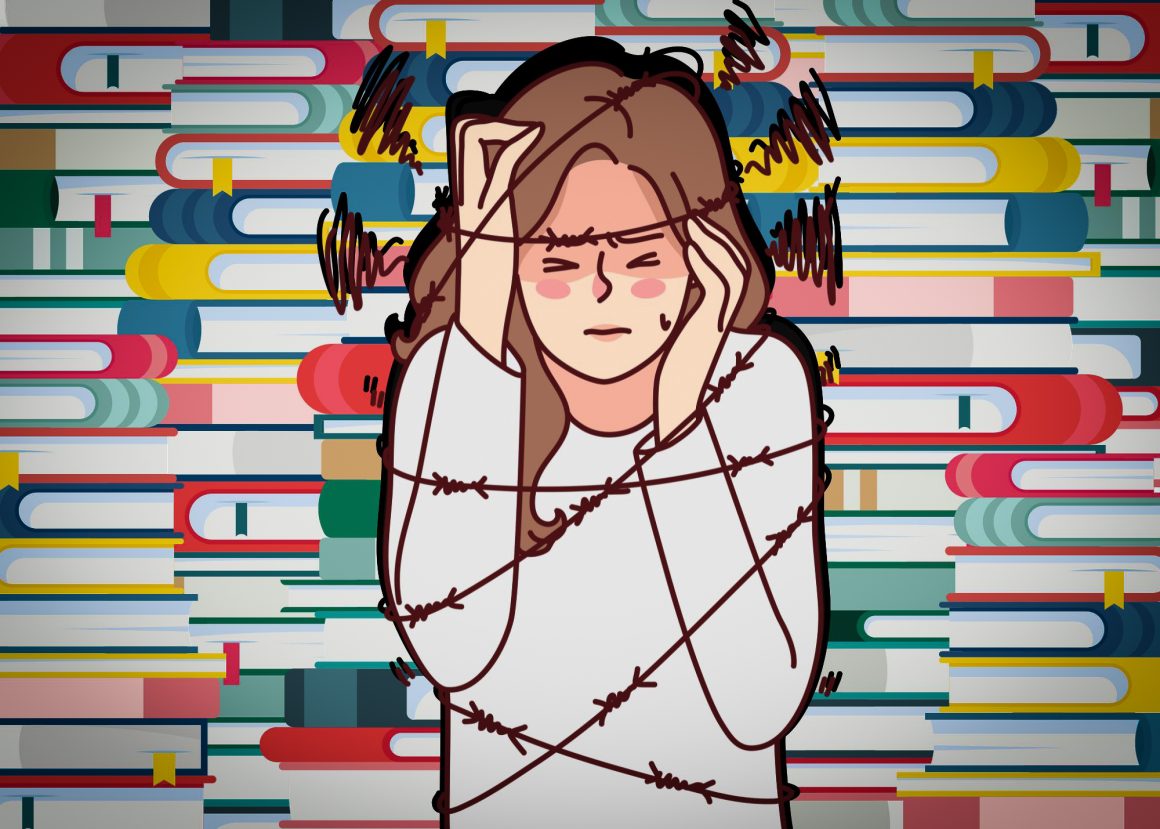
Living with chronic illness in university
By Avery Sharpe, December 23 2023—
Coming into university, I had never experienced the debilitating effects of chronic illness. In fact, up until that first month of my first semester, I didn’t really understand what it meant to be chronically ill at all — I think a lot of people don’t. Unfortunately, almost half of Canadians live with some kind of chronic disease, and the real negative implications of living with one are often overlooked. Especially in university, living with chronic sickness can be overwhelming, isolating and make students’ lives even more challenging.
Chronic illness comes in a lot of shapes and forms, and no one’s experience is the same. Someone can experience back pain, migraines, arthritis, or even cancer-related chronic pain. For me, that illness is stomach pain that started in my first semester of university, and it’s caused me a lot of grief since then. However, it’s not the actual flare-ups of sickness that have been most hard to handle, but the frustration of navigating the medical system, the guilt of skipping social events, and the effort of trying to manage living a life at university on top of my medical struggles.
At first, this was really difficult for me to do. How on earth was I supposed to manage a full course load, explore a new city, make friends, set myself up for a future and this new illness? It seemed impossible, and my frustration, sadness, and guilt all took a toll on me until I reached a breaking point. I’ll never forget making that phone call to my parents, desperately crying out for support as I struggled to stay positive. University was supposed to be a really amazing experience, and here I was, sick every other day, feeling like I could never live a real university experience. Why couldn’t I just be normal?
However, since that time in my life, I have been able to establish a much more stable mindset when it comes to my illness, and I have learned a lot about how to make it through university life while living with chronic sickness. That’s not to say I never have my moments, but my new motto is “good days and bad days”. That is, I now allow myself to have those sad and frustrated moments and I won’t hold it all in. I make sure to reach out to someone, whether my sister, parents, or friends, to get the support I need to make it through the day. Then, I let the day pass, and try to wake up the next morning with hope for a ‘good day’. Mindset is super important to me, and for good reason. Studies have shown that just thinking a treatment is working can make you feel better, even if that treatment is only a placebo. However, this placebo effect works the other way too. If you believe something is going to be painful or become anxious about your illness, it can cause your symptoms to be worse. Considering this, keeping a modicum of routine and doing things to lower stress levels is really important for managing any kind of chronic sickness. Your brain and body are always connected.
Another thing I’ve learned to do over the years to help manage my illness is to give myself grace. It’s so tempting to push yourself to go to class, attend that event, or go out with your friends, but when you are feeling sick you should never force yourself to do something you can’t. Of course, I make an effort to do what I can and never hold myself back from an amazing opportunity because I’m scared, but I also make sure to really evaluate my health and mindset before I push myself too far. It’s better to skip that lecture or take a rain check on an outing if you know it won’t be good for you in the long run. I’ve still had so many amazing experiences while at university, and I know that those experiences won’t stop coming just because I skipped one to preserve my mental health.
Overall, university is going to be harder for those of us that suffer from chronic pain or illness. We will have to take more sick days, be more conscious of our limits, and lean on the supports around us to make it through. The important thing, however, is to remember that you have those supports. Talk to Student Accessibility Services to learn what they can do for you. Give your sister a hug just to feel some unconditional human compassion. Call your parents for their always timely advice. Importantly, never forget that you aren’t alone. I certainly needed that reminder more than once throughout my journey with chronic sickness in university.
This article is a part of our Voices section and does not necessarily reflect the views of the Gauntlet editorial board.
